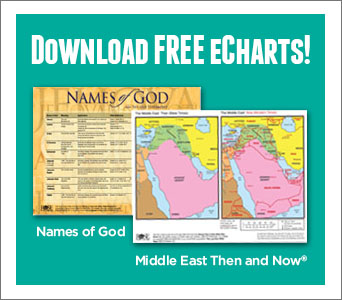
Whether you think of the angels that met the shepherd’s to announce Jesus’ birth… or perhaps you think of beings with halos and harps… most people have questions about whether or not angels exist. What does the Bible say?
Does Matthew 18:10 support the idea that all children have guardian angels?
By Mike Nappa
This passing statement by Jesus has been used as the primary proof-text for belief in guardian angels, along with Acts 12:15.
Theologians like Dr. Louis Berkhof, however, say these verses are flimsy evidence on which to base the larger doctrine. Others, like the sixteenth-century Reformer John Calvin, are skeptical of the idea but unwilling to rule out guardian angels completely. Calvin wrote, “When Christ says that the angels of children always behold the face of his Father, he insinuates that there are certain angels to whom their safety has been entrusted. But I know not if it can be inferred from this, that each believer has his own angel.” Calvin does acknowledge, however that early church fathers held “a common belief that every believer has a single angel assigned to him.” This was consistent with the Hebrew culture of Jesus’ time that also affirmed a belief in at least one guardian angel for every Jewish person.
As for me, I’m inclined to believe that guardian angels do exist and work in concert with the greater angelic host to fulfill God’s intentions toward his people. I see that as an easy logical assumption from Matthew 18:10 and other Scriptures (for instance, 2 Kings 6:15–18; Psalm 91:9–11; Luke 16:22; Acts 12:15, among others). The existence of guardian angels is also something that’s consistent with Christ’s character and care as revealed in Scripture.
Ron Rhodes, expert in angelology, sums it up well, I think:
Whether each of us has just one angel watching over us or many, we cannot say for sure. Yet one thing is certain: If we as Christians were more fully aware of God’s provision of angelic protection … we would most certainly be less fearful.
Ron Rhodes
Sources: ST 147; ICR 94; AAU 167–168, 170; IBB 93
Did you enjoy this post? If you did, you can get more Q&As like this in Mike Nappa’s upcoming book Bible-Smart: Matthew! Pre-order it today!
Bible-Smart: Matthew
Q & A for the Curious Soul
By Mike Nappa
Honest Questions Everyone Has About the Bible
What if there was a way to inject more curiosity and fun into your Bible study? Studying the Bible doesn’t have to be a chore, and understanding God’s Word doesn’t mean slogging through commentaries stuffed with theological jargon.
Bible-Smart: Matthew is an invitation to sit down together and talk about honest questions everyone has about the Bible. Every page is a relaxed, enjoyable conversation through the Gospel of Matthew. Covering more than 200 questions, Mike Nappa gives well-researched and thoughtful, yet easy-to-understand answers to what you’ve always been curious about.
Key Features of Bible-Smart: Matthew
- Relevant: Real questions that most Christians want to know. Maybe they’re questions you’ve been afraid to ask your pastor or bring up at Bible study. This is a new kind of commentary for today’s generation. Questions include:
- If Jesus clearly promises “you will receive what you ask for” in prayer, why do so many prayers go unanswered?
- Do we know where Jesus was buried?
- Did Jesus really walk on water?
- Do “outer darkness” and “weeping and gnashing of teeth” always refer to hell, or are there other interpretations?
- And much more!
- Bible-Based and Expert-Driven: The answers cite Scripture and quote from solid Bible experts so you know you will have reliable insights!
- Fascinating Facts: It’s never been more fun to dive into God’s Word! Whether you’re looking to uplift your own Bible study or get a new believer, teen, or disciple more engaged in studying the Bible, this book is a fantastic way to draw in any reader! Here are some fascinating facts you’ll learn about:
- Until the age of twelve, children were not allowed to attend religious meetings (girls were excluded longer)–so it was incredibly radical that Jesus elevated and spent time ministering to children.
- What about ghosts? The Old Testament teaches that people have some kind of consciousness after death, but it doesn’t teach that ghosts roam the earth.
- Jesus wasn’t the first to use the mustard seed as an example. In the first century, teachers and writers commonly referenced it to symbolize something that was very, very small, so the mustard seed was a familiar image.
- And more!
There is joy in discovering the riches of God’s Word, and curiosity is the first step. Each Q&A can be read in under two minutes, making this book perfect for:
- Small-group Bible studies
- Young-adult ministries
- Personal reading and devotion
- Homeschool
- Discipleship
- Church libraries
- Gifts for new and lifelong believers




This is really intresting! I don’t see a lot of people cover guardian angles thanks!